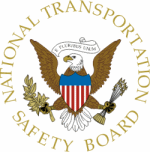Sun, Mar 28, 2010
Pilot Was Not "Instrument Current"
 The NTSB has issued a Probable
Cause report for an accident that occurred during an "Angel
Flight." Pilot Joseph Baker was transporting a cancer patient and
his wife from Connecticut to Boston in August, 2008, when the
airplane, a Beechcraft G35 Bonanza, went down in a supermarket
parking lot, killing all three.
The NTSB has issued a Probable
Cause report for an accident that occurred during an "Angel
Flight." Pilot Joseph Baker was transporting a cancer patient and
his wife from Connecticut to Boston in August, 2008, when the
airplane, a Beechcraft G35 Bonanza, went down in a supermarket
parking lot, killing all three.
The probable cause report indicates that Baker, an instrument
rated pilot, was a volunteer pilot for a charity organization that
connects pilots and aircraft owners with individuals in need of
transportation primarily for medical purposes. The pilot was not
instrument current. In addition, the charity did not verify
instrument currency of volunteer pilots nor were they required
to.
After takeoff, the flight proceeded towards the destination
airport on an instrument flight rules clearance and was vectored
onto the downwind and base legs for sequencing. The pilot made two
errors related to incorrect heading changes both of which were not
immediately detected by the controller, but neither were
significant. While on the base leg and approximately 1.5 miles west
of the final approach course for runway 4R, the controller
instructed the pilot to fly heading 060 degrees to intercept the
final approach course. Radar data depicted a large radius turn
towards the left, and the airplane flying through the final
approach course. When the flight was approximately 1.6 miles east
of the final approach course, the controller advised the pilot he
had passed through the course and instructed him to turn to a
heading of 010 degrees to re-intercept. Radar depicted a tight
radius turn past the assigned heading, while the airplane descended
below the assigned altitude of 3,000 feet. The airplane then turned
to the north, then southeast with altitude deviations descending so
low the controller issued several low altitude alerts. The airplane
then entered a final descent, immerged from the base of clouds, and
impacted into a parking lot. Examination of the engine, airframe,
and avionics did not reveal any preimpact failures or
malfunctions.
The NTSB determined that the probable cause(s) of this
accident to be the pilot's failure to maintain control of the
airplane while attempting to execute an instrument approach in
instrument meteorological conditions. Contributing to the accident
was the pilot's lack of instrument currency.
More News
Scheduled for Friday, November 7th at 1800ET, The MOSAIC Town Hall, Webcast At www.airborne-live.net One of the more intriguing features of the 2025 Affordable Flying Expo, schedul>[...]
From 2023 (YouTube Edition): The Mosquito Evolves Formerly known as Mosquito, Trenton, Florida-based Composite FX is a designer and manufacturer of personal kit and factory-finishe>[...]
“The Board is pleased to name Lisa as our next CEO after conducting a comprehensive succession planning process and believes this transition will ensure continued success for>[...]
Ground Stop (GS) The GS is a process that requires aircraft that meet a specific criteria to remain on the ground. The criteria may be airport specific, airspace specific, or equip>[...]
The Airplane Stalled Above The Runway Threshold, The Nose Dropped, The Nose Wheel Impacted The Runway, And The Airplane Flipped Over Analysis: The pilot reported that during the fi>[...]
 Affordable Flying Expo Announces Industry MOSAIC Town Hall
Affordable Flying Expo Announces Industry MOSAIC Town Hall Classic Aero-TV: Composite-FX Sets Elevates the Personal Helicopter Market
Classic Aero-TV: Composite-FX Sets Elevates the Personal Helicopter Market Aero-News: Quote of the Day (10.25.25)
Aero-News: Quote of the Day (10.25.25) ANN's Daily Aero-Term (10.25.25): Ground Stop (GS)
ANN's Daily Aero-Term (10.25.25): Ground Stop (GS) NTSB Final Report: Gallow Daniel A Kitfox Classic IV
NTSB Final Report: Gallow Daniel A Kitfox Classic IV



